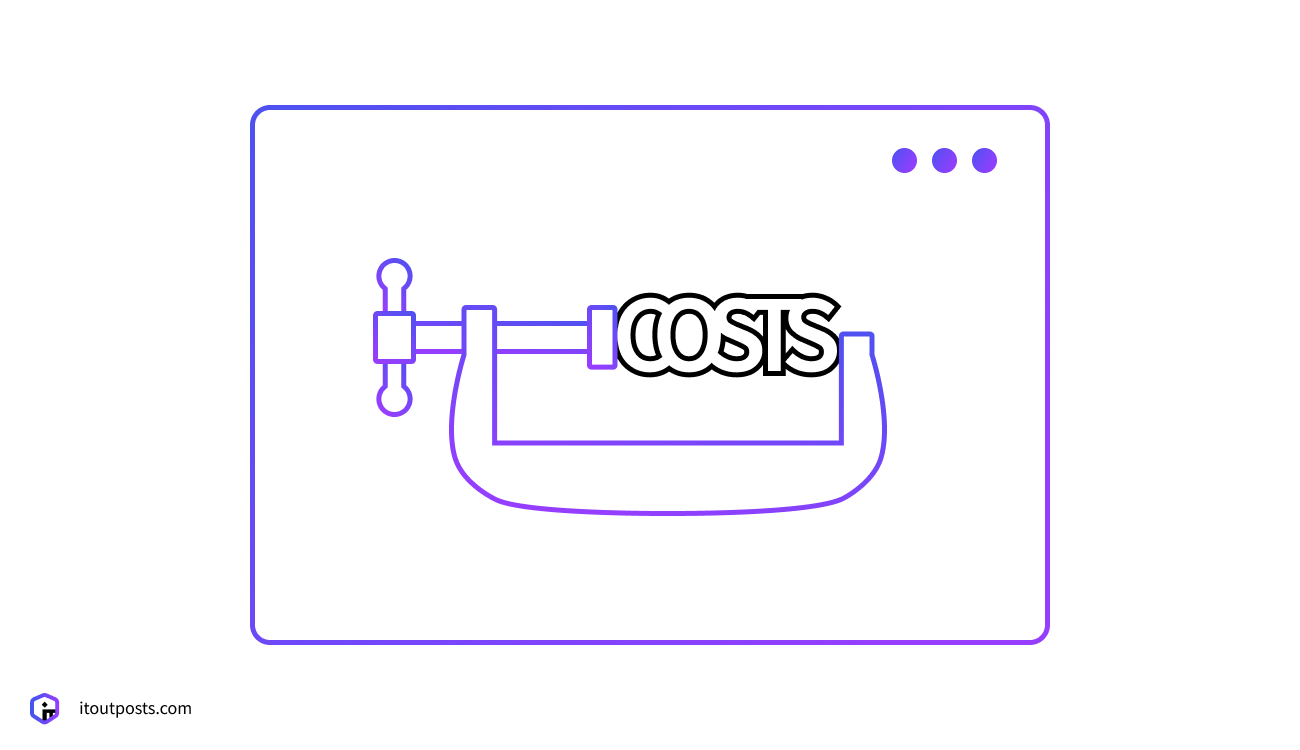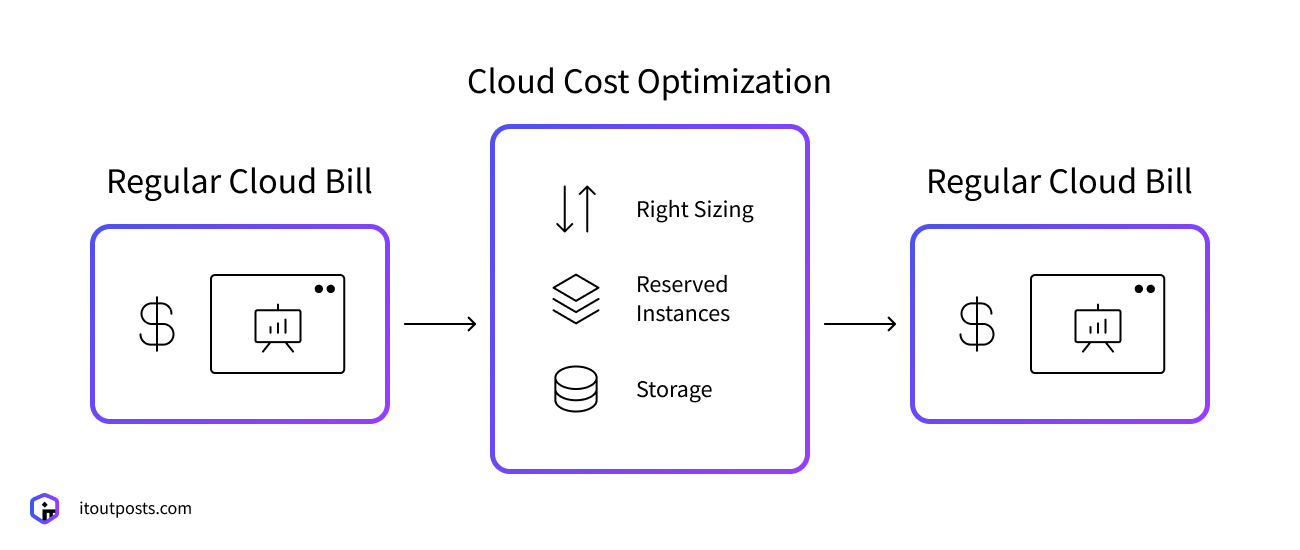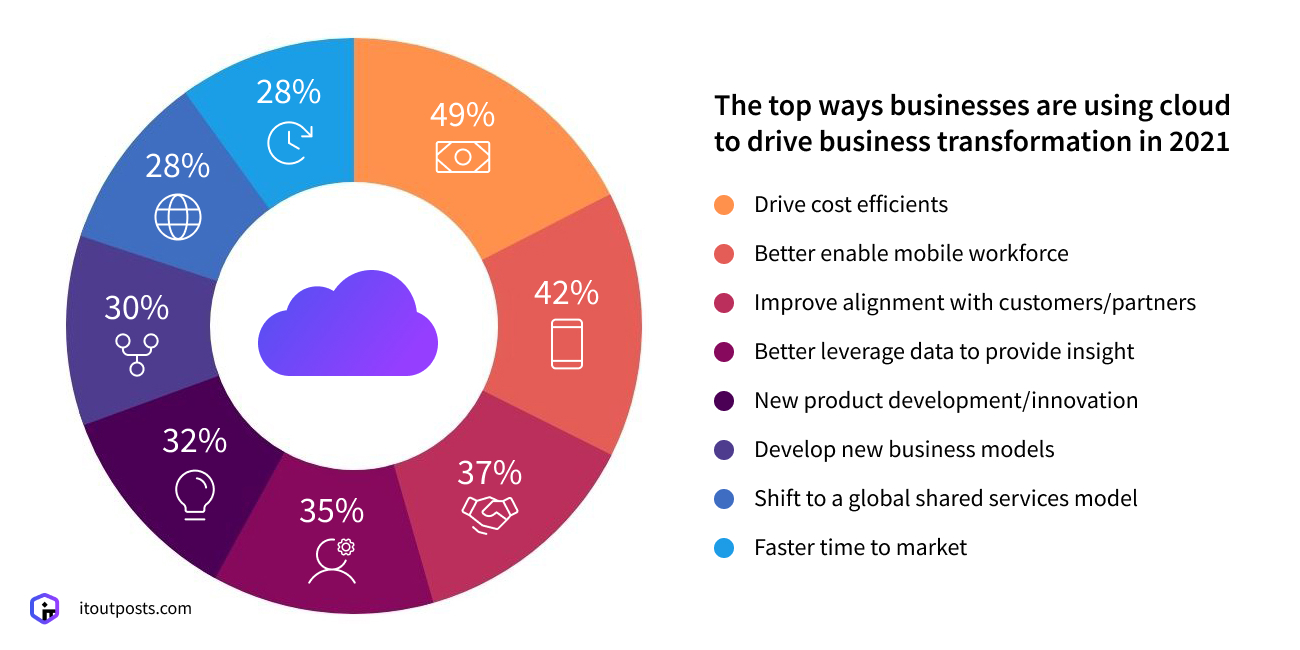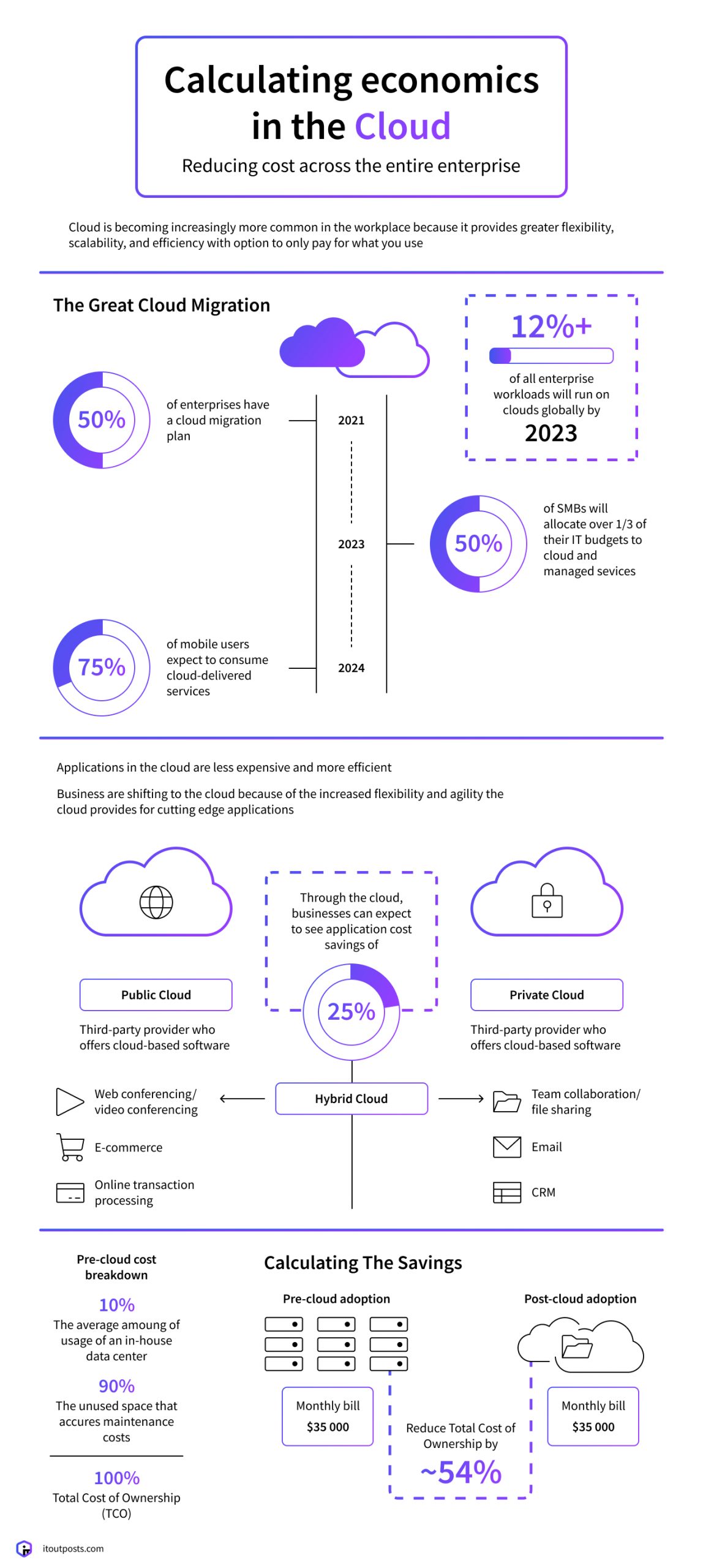Contents
Moving to the cloud can be a complicated process. But the work does not end when you finish transferring your last app to your new cloud. In 95% of cases, the real job has just begun. You want to optimize your operating performance and save money, right? And you know it is not easy: you typically will have large volumes of data always coming in at high velocity.
In a consumption-based model, if you do not control every aspect of the application lifecycle, it will work against you. You can easily spin out of control. So, you must optimize your process to make sure that your product is the best that it can be for the most people. Want to know how to reduce your cloud costs? I have prepared six top tips for getting the most from the cloud. Just keep reading.
The most basic tip is to understand what is in your estate. What are you spending your money on these days? Who makes those spending decisions? Check where the money is going.
Further your understanding of Cloud Cost Optimization.
When companies decide to embrace cloud storage, they often migrate their information to the new system and then forget about it. But they do not know what is going to happen in the future. Of course, you cannot continually improve performance if you do not know how you’re doing in the present. The first thing you should do is to build awareness of your processes into your estate.

Use tags
To easily sort your data, you need add tags. Tags are metadata that tell you who owns something, what it is supposed to do, and how important it is. But do not create a lot of tags. Very often, people use the account name as a tag, which is likely to result in redundant tag values. I know one company who used 9,000 tags – way too many! The best option is to have five to ten tags focused on value, business contacts, importance, and environment. Choose three to five entries that are most important and add these to your quick search.


Tailor to fit
One of the most common mistakes companies make when they move to the cloud is they buy more storage space than they really need. Aim to downsize! You should customize your servers to meet your real needs. Check benchmarks, monitor performance, and gradually scale down until you find the right size. The same goes for storage volumes. Billing is based on the amount of storage provided, not the amount of storage used. So do not think, “Oh, I’m going to provide a 5-terabyte hard drive because maybe one day I’ll be using it later.” That is huge mistake! You may never use it—and end up wasting company money!
Read also: How DevOps can grow my ecommerce business

Delete all unnecessary files
Do you really need to store every file you have ever created? It is okay to do this on your personal computer, if necessary, but on your company’s cloud it costs real money. When considering different forms of storage, you also need to find the right compromise between functionality and cost. For example, you do not want to store archived data on an expensive SSD, right? There is a much less expensive option. In fact, there are many varieties of cloud storage, from the ultra-fast P30s, which are expensive, to cold archive storage, which is much more affordable. Do not forget you can optimize the rest of your assets, but storage will take a larger percentage of your expenditures. And in this context, utilizing effective cloud migration services becomes crucial to ensuring a seamless transition, from strategy formulation to execution, and reaping the benefits of streamlined and cost-effective transformation.

Kill zombies
Zombies might be fun in movies, but not so much in the cloud. Zombies in the cloud are resources which eat into your budget but do not yield good value. A zombie may be, for example, a forgotten server from prior stages of testing. One common characteristic of zombies is that no one knows what the zombies are for or who owns them. But whatever the reason, the zombies are running, and they are costing you money! This is pure waste. If you suspect that you have zombies, shut them down for a week. This is the quickest and easiest way to identify the owner, as usually the owner will contact you to ask where that file has gone. If no one raises the alarm, it is likely that these resources were unnecessary from the beginning.
Hire a team of DevOps engineers with IT Outposts
Contact UsBuy at fixed prices
Reserved Instances (RI)—a reservation of resources and capacity for a fixed period, usually a year or two—are yet another area where you can optimize your cloud performance. Buying RI is a big upfront investment that can save you money overall. On another hand, it can eliminate your ROI and even cost you if not done right. RI attracts companies because of the potential value. But often, companies dive in and commit to RIs without a clear understanding of their storage needs.
They expect that RI will save them money but eventually find they have not accurately predicted their demand. If a company buys an RI on a 2XL machine, but it turns out their architecture only requires a medium or a large, they have now committed for a year or more to an expensive machine they do not need. It is possible to save money with an RI, but it is important to have a thorough understanding of your company’s need first! Read also: Security DevOps risks and how to deal with them

Pay attention to your metrics
Yes, it is a cliché, but it is still true: to be successful at anything, you need to pay attention to your metrics. Your clouds are no exception. You need to establish the key performance indicators (KPI) that are most relevant to your company. Decide what things you are going to track and why: these could be a base cost per CPU, RAM per gigabyte, or any business-focused metric. Additionally, remember that when you embrace the cloud and your team gets more comfortable with it, you will eventually use it more. This means you may end up with more costs. But you can still be successful if you control all your KPI.
I want to get started. Where do I begin?
Does bringing DevOps into your business sound right for you? Put your details into the form right now and get your project estimation absolutely for free! The future of your business starts right now!
FAQ
What discounts are available in the cloud?
Cloud providers offer discounts when you purchase resources in advance to help you save money. The most common ways to save include using Reserved Instances and Savings Plans.
Are there any “hidden” costs of operating in the cloud?
“You pay for what you order.” In other words, just because you’re not using something you’ve provisioned doesn’t mean it’s not costing you money.
What are some other ways we can measure the success of our cloud investment?
Financial KPIs, or the dollars-and-cents approach, and business-value KPIs related to the efficiency, productivity, and other benefits your staff gets out of cloud computing.

I am an IT professional with over 10 years of experience. My career trajectory is closely tied to strategic business development, sales expansion, and the structuring of marketing strategies.
Throughout my journey, I have successfully executed and applied numerous strategic approaches that have driven business growth and fortified competitive positions. An integral part of my experience lies in effective business process management, which, in turn, facilitated the adept coordination of cross-functional teams and the attainment of remarkable outcomes.
I take pride in my contributions to the IT sector’s advancement and look forward to exchanging experiences and ideas with professionals who share my passion for innovation and success.